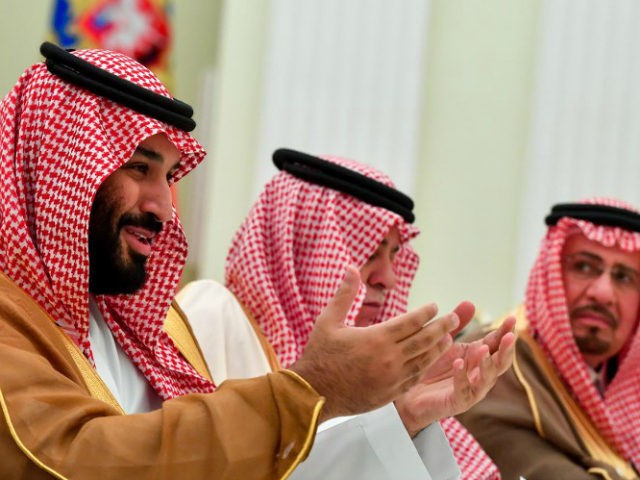Ajlan al-Ajlan, the head of Saudi Arabia’s Chamber of Commerce, declared in a statement this weekend that a full boycott of all Turkish products was “the responsibility of every Saudi.”
Tensions between Turkey and Saudi Arabia have remained high since the killing of columnist Jamal Khashoggi at the Saudi consulate in Istanbul in 2018. Turkish President Recep Tayyip Erdogan — under whose command Turkey has become the world’s most prolific jailer of journalists after China — used Khashoggi’s killing at the hands of Saudi agents to declare himself a friend of the free press and demonize Riyadh, suggesting that the homicide was a direct order from “the highest levels of the Saudi government,” as he wrote in the Washington Post.
The Khashoggi ordeal occurred as Turkey appeared to be growing closer to Iran, Saudi Arabia’s longtime geopolitical rival, and attempting to position itself as the leader of the Islamic world, in contrast to Saudi Arabia, home to the world’s holiest Islamic sites. Erdogan has also increasingly concerned his neighbors with a growing number of foreign invasions, including military operations in Syria, Iraq, Libya, and, most recently, Azerbaijan.
Erdogan appeared to take another swipe at Saudi Arabia last week while addressing the nation’s lawmakers.
“It should not be forgotten that the countries in question did not exist yesterday, and probably will not exist tomorrow; however, we will continue to keep our flag flying in this region forever, with the permission of Allah,” Erdogan said. While he did not name any particular country, the Saudi commerce official took offense.
“Boycotting everything Turkish, whether on the level of import, investment, or tourism, is the responsibility of every Saudi — trader and consumer — in response to the continued hostility of the Turkish government against our leadership, our country and our citizens,” al-Ajlan posted on Twitter.
Another lamented that Saudi Arabia was his “most important market” but that the traders he did business with had abruptly stopped buying Turkish goods. The business contact allegedly claimed the Saudi government had urged him to stop buying Turkish products.
Cumhuriyet‘s report on trade cut off from Turkey to Saudi Arabia was the most detailed released this year, but another Turkish newspaper, Dunya, had reported an unofficial ban on Turkish products as early as July of this year.
“They don’t want anything with a ‘made in Turkey’ stamp,” the newspaper asserted.
Saudi Arabia’s al-Arabiya network, while noting the call from the Saudi Chamber of Commerce head, noted that Turkey’s economy is currently in a “nosedive” — a combination of the results of anti-Chinese coronavirus measures hurting the economy and poor spending policies. The Turkish currency, the lira, fell to a value of 7.7 lira to one U.S. dollar on Monday, which al-Arabiya noted was a “record low.” Repression under Erdogan — the imprisonment of thousands of people in the four years after the failed coup against him in 2016, an ongoing informal martial law status in the Kurdish south of the country — has also spooked foreign investors. The situation is particularly dire as Erdogan rose to prominence, and ultimately won the presidency, as a free-market conservative; his handling of the economy initially buoyed his stay in power.
Turkey’s state media outlet Anadolu Agency carried an interview Monday with a lower-level government official, Deputy Culture and Tourism Minister Serdar Cam, whose remarks appeared meant to soften the edges of the current relationship Turkey has not just with Saudi Arabia, but with its allied Gulf states. Cam argued that a seedy network of agents working for Fethullah Gülen, an Islamic cleric living in exile from Turkey after breaking politically with Erdogan, was behind a smear campaign intended to divorce Turkey from the Gulf states. As with most accusations involving Gülen, Cam offered no evidence for this.
“These elements produce formulaic news against Turkey and President Erdogan, which you probably have watched or read frequently in recent years. These are fake, fabricated, and baseless allegations,” Cam told Anadolu. “Nearly all these news and articles are produced at one single center by elements of FETO [the Fetullah Terrorist Organization, a group only Erdogan’s government recognizes as real] and their domestic/foreign supporters (and some by other terrorist groups who define Turkey as their enemy) and are disbursed to various countries in different languages via their own or affiliated media channels.”

COMMENTS
Please let us know if you're having issues with commenting.